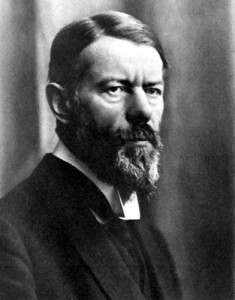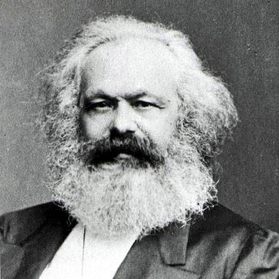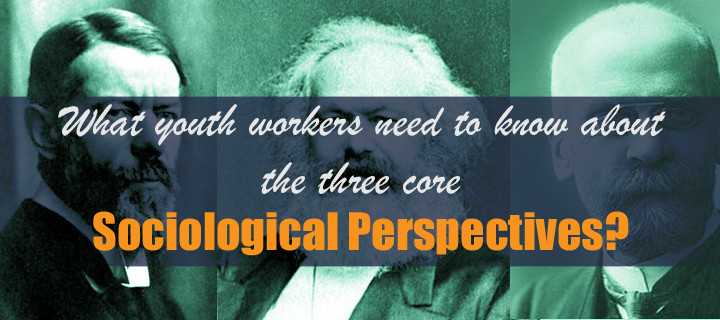Sociology for youth workers
 As youth workers we draw on many different frameworks to help us make sense of the world our young people live in. One of the most used frameworks in our kit bag is sociology. Through the sociological lens we can analyse social phenomena at different levels and from different perspectives. From concrete interpretations to sweeping generalisations of society and social behaviour, youth workers can study everything from specific events (the micro level of analysis of small social patterns) to the way groups work together (The meso level of analysis of groups and organisations) to the “big picture” (the macro level of analysis of large social patterns).
As youth workers we draw on many different frameworks to help us make sense of the world our young people live in. One of the most used frameworks in our kit bag is sociology. Through the sociological lens we can analyse social phenomena at different levels and from different perspectives. From concrete interpretations to sweeping generalisations of society and social behaviour, youth workers can study everything from specific events (the micro level of analysis of small social patterns) to the way groups work together (The meso level of analysis of groups and organisations) to the “big picture” (the macro level of analysis of large social patterns).
Below is a bite sized view of the top three perspectives in sociology which all youth workers should have an understanding of:
Symbolic interaction perspective
 The symbolic interaction perspective, also called symbolic interactionism, is a major framework of sociological theory. This perspective relies on the symbolic meaning that people develop and rely upon in the process of social interaction. Although symbolic interactionism traces its origins to Max Weber’s assertion that individuals act according to their interpretation of the meaning of their world, the American philosopher George Herbert Mead introduced this perspective to American sociology in the 1920s.
The symbolic interaction perspective, also called symbolic interactionism, is a major framework of sociological theory. This perspective relies on the symbolic meaning that people develop and rely upon in the process of social interaction. Although symbolic interactionism traces its origins to Max Weber’s assertion that individuals act according to their interpretation of the meaning of their world, the American philosopher George Herbert Mead introduced this perspective to American sociology in the 1920s.
Symbolic interaction theory analyses society by addressing the subjective meanings that people impose on objects, events, and behaviours. Subjective meanings are given primacy because it is believed that people behave based on what they believe and not just on what is objectively true. Thus, society is thought to be socially constructed through human interpretation. People interpret one another’s behaviour and it is these interpretations that form the social bond.
Critics of this theory claim that symbolic interactionism neglects the macro level of social interpretation—the “big picture.” In other words, symbolic interactionalists may miss the larger issues of society by focusing too closely on the “trees” rather than the “forest”.
https://www.youtube.com/watch?v=jFQIIM8IRZU
Functionalist perspective
 The functionalist perspective can be traced back to Emile Durkheim and Talcott Parsons and has its roots in anthropology. This perspective focuses on social systems as a whole, how they operate, how they change, and the social consequences they produce.
The functionalist perspective can be traced back to Emile Durkheim and Talcott Parsons and has its roots in anthropology. This perspective focuses on social systems as a whole, how they operate, how they change, and the social consequences they produce.
Functionalism interprets each part of society in terms of how it contributes to the stability of the whole society. Society is more than the sum of its parts; rather, each part of society is functional for the stability of the whole society. The different parts are primarily the institutions of society, each of which is organized to fill different needs and each of which has particular consequences for the form and shape of society. The parts all depend on each other.
In trying to explain an aspect of a social system, functionalism asks several basic questions:
- How is this aspect related to other aspects of the system?
- What is its place in the overall operation of the social system?
- What kinds of consequences result from this?
- How do these consequences contribute or interfere with the operation of the cultural values and the realization of the cultural values on which the system is based?
Functionalism emphasizes the consensus and order that exist in society, focusing on social stability and shared public values. From this perspective, disorganisation in the system, such as deviant behaviour, leads to change because societal components must adjust to achieve stability. When one part of the system is not working or is dysfunctional, it affects all other parts and creates social problems, which leads to social change.
The functionalist perspective achieved its greatest popularity among American sociologists in the 1940s and 1950s. While European functionalists originally focused on explaining the inner workings of social order, American functionalists focused on discovering the functions of human behavior. Among these American functionalist sociologists is Robert K. Merton, who divided human functions into two types: manifest functions, which are intentional and obvious, and latent functions, which are unintentional and not obvious.
Functionalism has been critiqued by many sociologists for its neglect of the often negative implications of social order. Some critics, like Italian theorist Antonio Gramsci, claim that the perspective justifies the status quo, and the process of cultural hegemony which maintains it.
Functionalism does not encourage people to take an active role in changing their social environment, even when such change may benefit them. Instead, functionalism sees active social change as undesirable because the various parts of society will compensate in a seemingly natural way for any problems that may arise.
http://https://www.youtube.com/watch?v=5jOZqVnQmdY
https://www.youtube.com/watch?v=5jOZqVnQmdY
Conflict Theory
 Conflict perspective is one of the major theoretical approaches to sociological thought. It originated with one of the fathers of sociology Karl Marx and his critique of capitalism and has since developed along a number of lines. In general, the conflict perspective assumes that social life is shaped by groups and individuals who struggle or compete with one another over various resources and rewards, resulting in particular distributions of power, wealth, and prestige in societies and social systems. These shape the patterns of everyday life as well as things such as racial, ethnic, and class inequality and relations among nations and regions of the world.
Conflict perspective is one of the major theoretical approaches to sociological thought. It originated with one of the fathers of sociology Karl Marx and his critique of capitalism and has since developed along a number of lines. In general, the conflict perspective assumes that social life is shaped by groups and individuals who struggle or compete with one another over various resources and rewards, resulting in particular distributions of power, wealth, and prestige in societies and social systems. These shape the patterns of everyday life as well as things such as racial, ethnic, and class inequality and relations among nations and regions of the world.
Conflict theory originated in the work of Karl Marx, who focused on the causes and consequences of class conflict between the bourgeoisie (the owners of the means of production and the capitalists) and the proletariat (the working class and the poor). Focusing on the economic, social, and political implications of the rise of capitalism in Europe, Marx theorized that this system, premised on the existence of a powerful minority class (the bourgeoisie) and an oppressed majority class (the proletariat), created class conflict because the interests of the two were at odds, and resources were unjustly distributed among them.
Within this system an unequal social order was maintained through ideological coercion which created consensus–and acceptance of the values, expectations, and conditions as determined by the bourgeoisie. Marx theorized that the work of producing consensus was done in the “superstructure” of society, which is composed of social institutions, political structures, and culture, and what it produced consensus for was the “base,” the economic relations of production.
Many social theorists have built on Marx’s conflict theory to bolster it, grow it, and refine it over the years. Explaining why Marx’s theory of revolution did not manifest in his lifetime, Italian scholar and activist Antonio Gramsci argued that the power of ideology was stronger than Marx had realized, and that more work needed to be done to overcome cultural hegemony, or rule through common sense.
Max Horkheimer and Theodor Adorno, critical theorists who were part of The Frankfurt School, focused their work on how the rise of mass culture (mass produced art, music, and media) contributed to the maintenance of cultural hegemony. More recently, C. Wright Mills drew on conflict theory to describe the rise of a tiny “power elite” composed of military, economic, and political figures who have ruled America from the mid-twentieth century.






Pingback: Key perspectives: Sociology - Ultimate Youth Worker